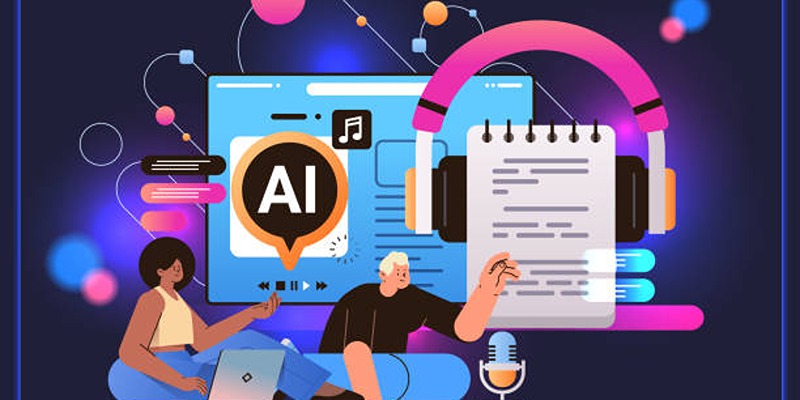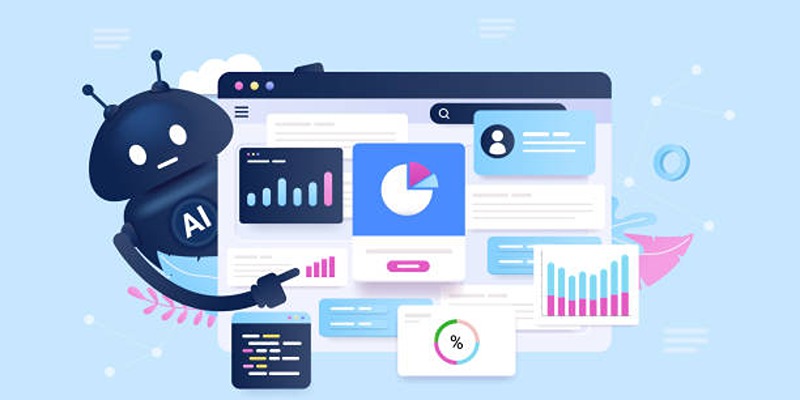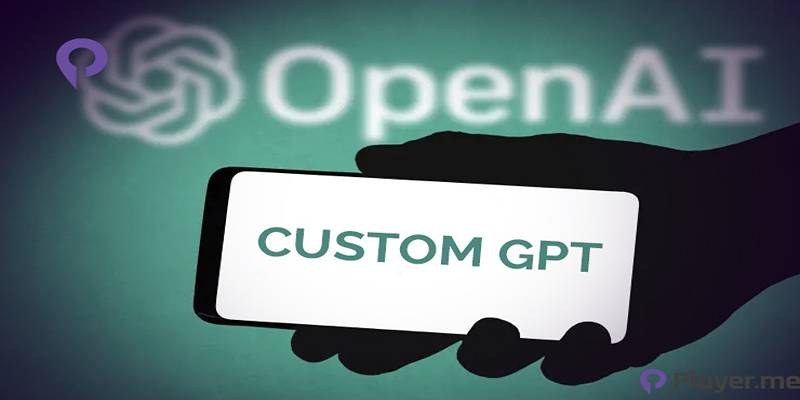In today’s fast-paced digital world, people see hundreds of ads every day. But how many of those ads truly feel relevant? That’s where artificial intelligence (AI) comes in. Businesses now use AI to make ads that match the exact needs and interests of each person. This process is called dynamic ad personalization, and it is changing how companies communicate with their audiences.
What Is Dynamic Ad Personalization?
 An ad’s content transforms to align with viewer characteristics such as preferences and actions combined with geographical factors and particular times. Businesses employ artificial intelligence systems for creating multiple variant advertisements which they show to individual audiences.
An ad’s content transforms to align with viewer characteristics such as preferences and actions combined with geographical factors and particular times. Businesses employ artificial intelligence systems for creating multiple variant advertisements which they show to individual audiences.
The same website displays distinct advertisements to different users based on their history of online activities. Running shoes appear in front of some viewers but formal wear appears to other viewers. This is not guesswork. Data processing in collaboration with AI lead to this outcome.
How AI Enhances Ad Personalization
AI uses large amounts of data to learn about customers. It tracks how people behave online—what they search for, click on, and buy. Then, AI uses this information to deliver ads that are most likely to interest them.
AI Tracks User Behaviour
AI can analyse data from social media, websites, apps, and other digital sources. It learns what users like, how they browse, and what content they interact with the most.
AI Segments Audiences Smartly
AI tools can divide people into groups based on shared interests or behaviour. This helps marketers show specific ads to the right group of people. For example, one group might be interested in outdoor activities, while another prefers indoor hobbies.
AI Generates Ad Content
Some AI tools can also help write ad headlines or choose images. These tools test different versions of an ad to see which one performs best. This process is called A/B testing, and AI can manage it automatically.
Why AI in Ad Personalization Works So Well
AI does not just make advertising easier—it makes it smarter. Here’s why AI-driven ad personalization is so effective:
- Real-Time Adjustments: AI can change ads in real time. If a user suddenly shows interest in a new topic, AI can adjust the ad content instantly.
- Saves Time and Resources: Creating separate ads for different audiences used to take a lot of time. AI now automates that process. Marketers don’t need to manually create many versions of an ad. AI does it for them, saving both time and cost.
- Higher Engagement and Conversions: When people see ads that match their interests, they are more likely to click and make a purchase. That means companies get better results from their marketing efforts.
Tools That Use AI for Dynamic Ad Personalization
Many popular platforms leverage AI to enhance ad performance, helping businesses reach their target audience more effectively and efficiently. Here are a few examples:
Google Ads
Google uses AI to optimize ad campaigns by adjusting bids in real time, choosing relevant keywords, and personalizing display ads based on user interests and browsing habits. This helps show ads to the right audience at the right time, boosting click-through rates and conversions.
Facebook Ads
Facebook’s AI tools help businesses connect with their ideal audience. By analyzing user data like profiles, likes, and browsing patterns, it creates highly targeted campaigns. This helps businesses deliver ads that resonate with specific demographics, boosting engagement and ROI.
Adobe Experience Cloud
Adobe’s Experience Cloud uses AI tools to help businesses create tailored ad campaigns. By analyzing user behavior and preferences, it delivers highly personalized content that resonates with the target audience. This ensures more effective campaigns and an improved customer experience.
With AI playing such a pivotal role, these platforms make it easier than ever for businesses to achieve their advertising goals.
Where You See Dynamic Ad Personalization in Action
You don’t have to look far to see dynamic ad personalization. It’s all around you.
Online Shopping Platforms
Websites like Amazon or eBay show ads based on your previous searches or purchases. If you looked at a smartphone yesterday, you might see ads for phone accessories today.
Streaming Services
Platforms like YouTube use AI to show ads based on the videos you watch. If you often watch cooking videos, you’ll likely see ads for kitchen tools or recipe apps.
Social Media
On apps like Instagram or Facebook, the ads in your feed are chosen using AI. They reflect your interests, the pages you follow, and even your location.
Benefits for Businesses and Customers
AI-driven dynamic ads offer benefits for both sides—marketers and customers.
For Businesses:
- Better ROI: With more relevant ads, businesses get more value for every dollar spent.
- Deeper Insights: AI provides detailed data about how customers interact with ads.
- Scalability: AI can manage millions of users and still deliver personalised content.
For Customers:
- Less Annoying Ads: Personalised ads feel more like helpful suggestions than interruptions.
- Time-Saving: Relevant ads help customers find what they’re looking for faster.
- Improved Experience: Viewers get content that fits their needs, interests, and lifestyle.
Challenges of AI in Ad Personalization
Despite all the benefits, using AI for dynamic ads comes with its own set of challenges that businesses must address to ensure success.
Privacy Concerns
As awareness of data collection grows, so do privacy concerns. Consumers expect companies to handle their information responsibly, making transparency essential. Following laws like GDPR or CCPA isn’t just a legal requirement—it’s key to building customer trust. Failure to comply can lead to reputational damage and costly penalties.
Data Quality
AI is only as effective as its data. Poor, incomplete, or outdated input can result in irrelevant ads, poor targeting, and wasted budgets. Businesses must invest in data collection, cleaning, and updates to ensure AI tools make accurate decisions. High-quality data is the backbone of AI-driven ads.
Over-Personalization
Personalization can boost ad performance and engagement, but there's a fine line between helpful and intrusive. Overly targeted ads can make users uncomfortable, leading to distrust or disinterest. Striking the right balance is key—ads should feel relevant without being invasive or creepy.
Future of AI in Advertising
 As technology grows, AI will only become more powerful in marketing. We can expect to see:
As technology grows, AI will only become more powerful in marketing. We can expect to see:
- Voice-Powered Ads: Ads that respond to voice commands or preferences.
- AI Chatbots: Bots that offer personalised product suggestions in real time.
- Emotion Detection: Tools that adjust ads based on facial expressions or tone of voice.
Businesses that invest in AI today will be better prepared to connect with tomorrow’s customers in meaningful ways.
Final Thoughts
AI is not just a trend in advertising. It’s a tool that helps marketers speak directly to each customer. Through dynamic ad personalization, businesses can show the right message to the right person at the right time. With careful planning, ethical data use, and the right tools, AI-driven advertising will continue to improve both business results and user experiences.
By understanding the role of AI in dynamic ad personalization, you can stay ahead in the marketing world—whether you're a small business owner, digital marketer, or someone just curious about the power of technology in advertising.











